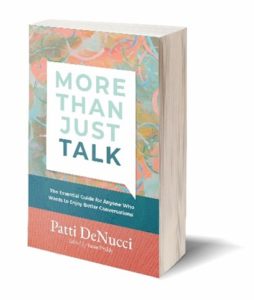If you’re like me, you’re seeing a lot of posts and articles these days about the value of being authentic; being our true selves. And not just at home or with our closest friends, but in our daily lives, at work, and in our social interactions.
I completely agree that it’s better to be and to share who we really are than to play roles that give false impressions ─ and rob us of our integrity, energy, health, and peace. Both American writer Joseph Campbell and Swiss psychoanalyst Carl Jung called the process of finding and becoming our true selves “the privilege of a lifetime.” So yes, the trend toward authenticity is positive and refreshing. It invites us to discover, own, and share our uniqueness, humanity, and imperfections.
Unfortunately, some people misinterpret what “authenticity” means. In some cases, they use it as an excuse to be…shall we say, less than cordial or courteous.
See if any of these sound familiar:
“Hey, I call it like I see it. That’s who I am. If I started sugar-coating everything, I wouldn’t be authentic.”
“I know some people may find me a little offensive, but I’m just being real.”
“With me, what you see is what you get.”
Maybe you can think of other examples of the “This-Is-Just-Me-So-Deal-With-It Syndrome.”
The journey toward authenticity can involve some other wrong turns as well. For example, being honest and genuine isn’t a license to climb onto a soapbox with every conversation, wave a defiant banner in everyone’s face, or throw all restraint out the window. It’s not about unloading our life stories, drama, trauma, and troubles onto anyone and everyone. It’s not about saying or doing whatever comes to mind in the moment, regardless of the impact on others. And it’s never, ever about being rude, crass, disrespectful, or out of control.
In other words, being authentic still requires emotional intelligence and respect for social and professional protocol. With great authenticity comes great responsibility—and a lot of self-awareness and personal development.
Let’s examine this more closely.
What does it really look like to be authentic? I cover this vital topic in Chapter 18 of my new book More Than Just Talk. As you might guess, being authentic is one of the keys to enjoying better conversations. Based on my research, authentic people tend to be:
- Self-aware
- Comfortable being themselves, human, and imperfect
- Not interested in seeking attention
- Unconcerned with being liked by everyone
- Honest, reliable, and consistent
- Not focused on or impressed by material goods
- Thick-skinned and appreciative of truth and candor
- Humble
- At ease with a little self-deprecation
- Known for practicing what they preach
- Open and transparent ─ without going overboard
- Good at knowing when others are dishonest or less than truthful
This not only sounds authentic. It sounds like someone I’d want to get to know and have in my social circle ─ or on my team!
If you’re working to increase your authenticity, you might decide to be more intentional about speaking up during group interactions. Maybe you’ve realized it’s time to find a job that better suits you. Or you’re ready to return to a hobby you’ve always loved. Maybe some of your relationships or habits need reexamining. In whatever way authenticity plays out for you, keep in mind that sharing “the real you” with the world still involves some level of discipline and tact.
Being authentic is, indeed, the privilege of a lifetime. But all of us can continue to refine the way we do that. As my dear friend Jan Goss of Show Up Well Consulting says, “We’re all perfect as we are, but we can always improve.”
What are your thoughts and beliefs about “authenticity?” When is it a good thing? Or not so much? Tell me how you’ve found ways to discover, embrace, and express your true self with grace and style. How, when, and where do you think “being authentic” is misinterpreted or even abused? Let’s have a conversation!
—————————
Want to learn more about how to become more self-aware, authentic, and engaging in your conversations? Check out my new book More Than Just Talk. It’s available from any online book retailer and at BookPeople in Austin, Texas.
Interested in learning more about my programs? From workshops and presentations to conversation salons and online communities, I’m filling my fall and early 2024 schedule now. Want to know more? Email me at pattidenucci@gmail.com for details.



Recent Blog Comments